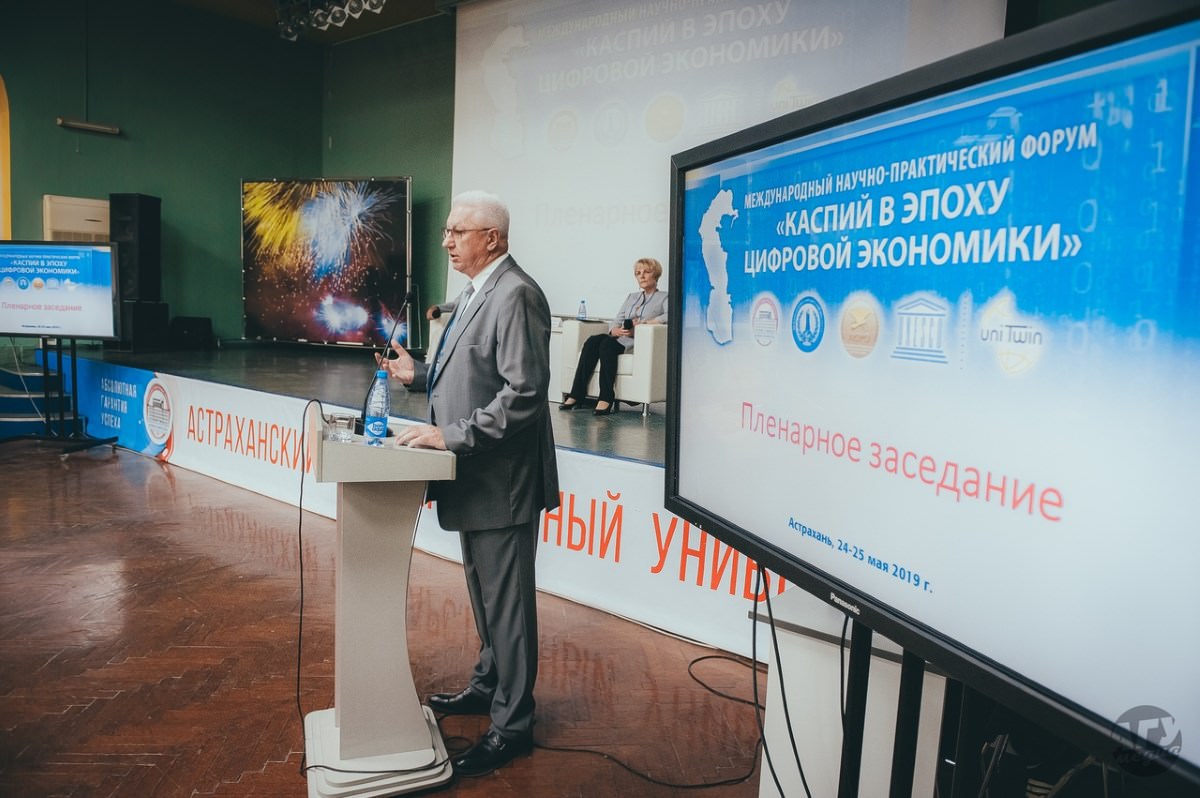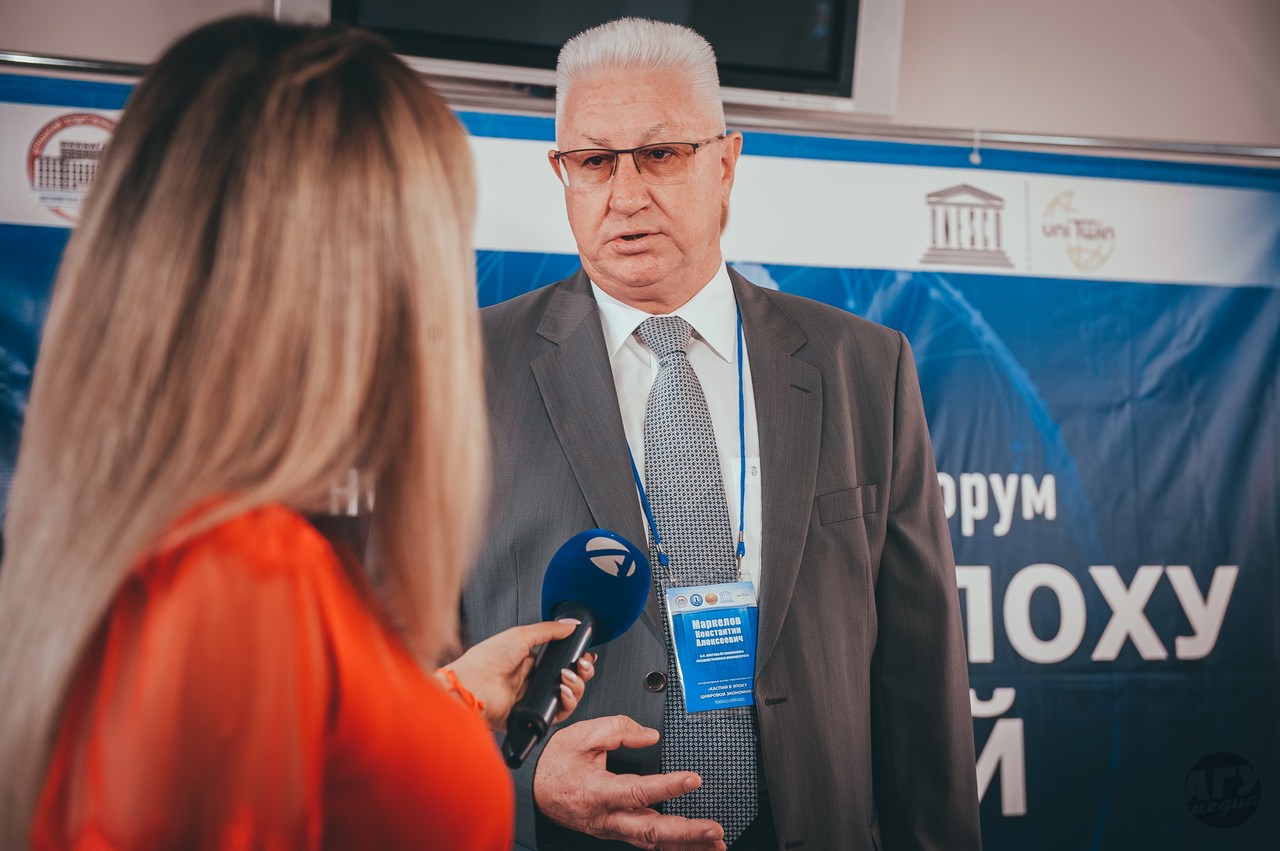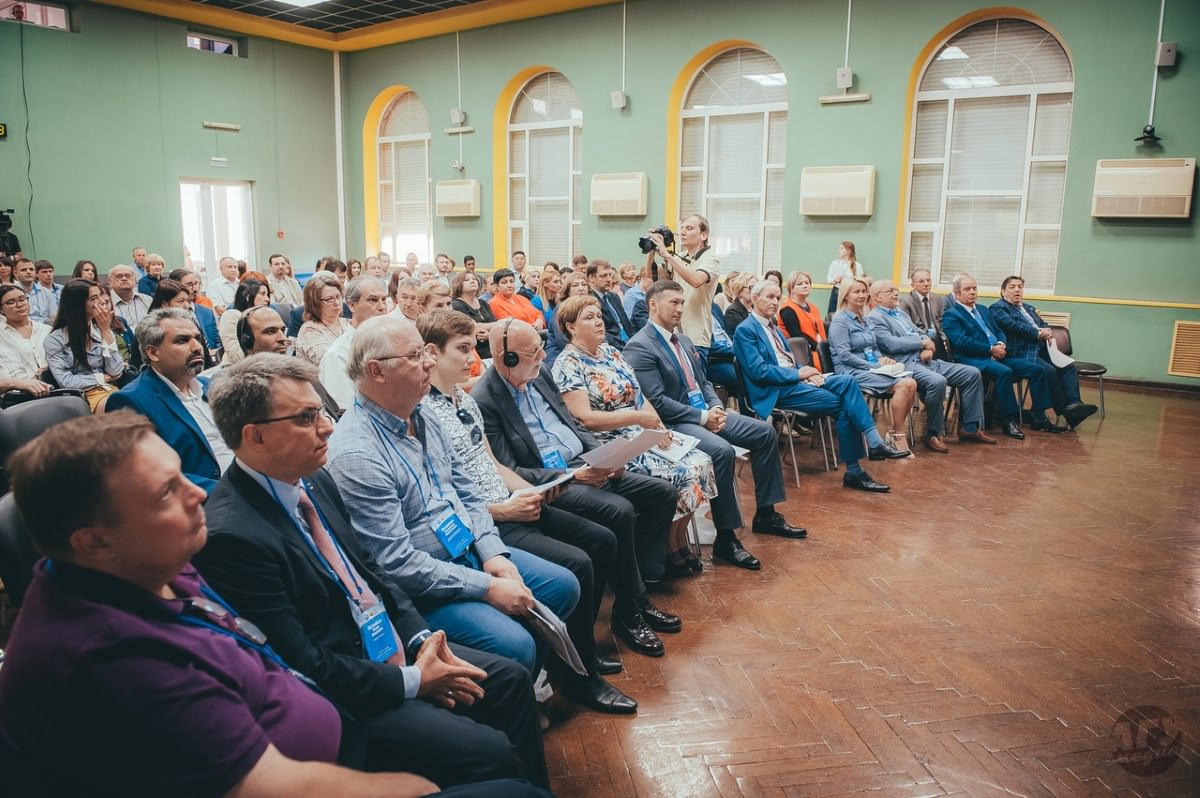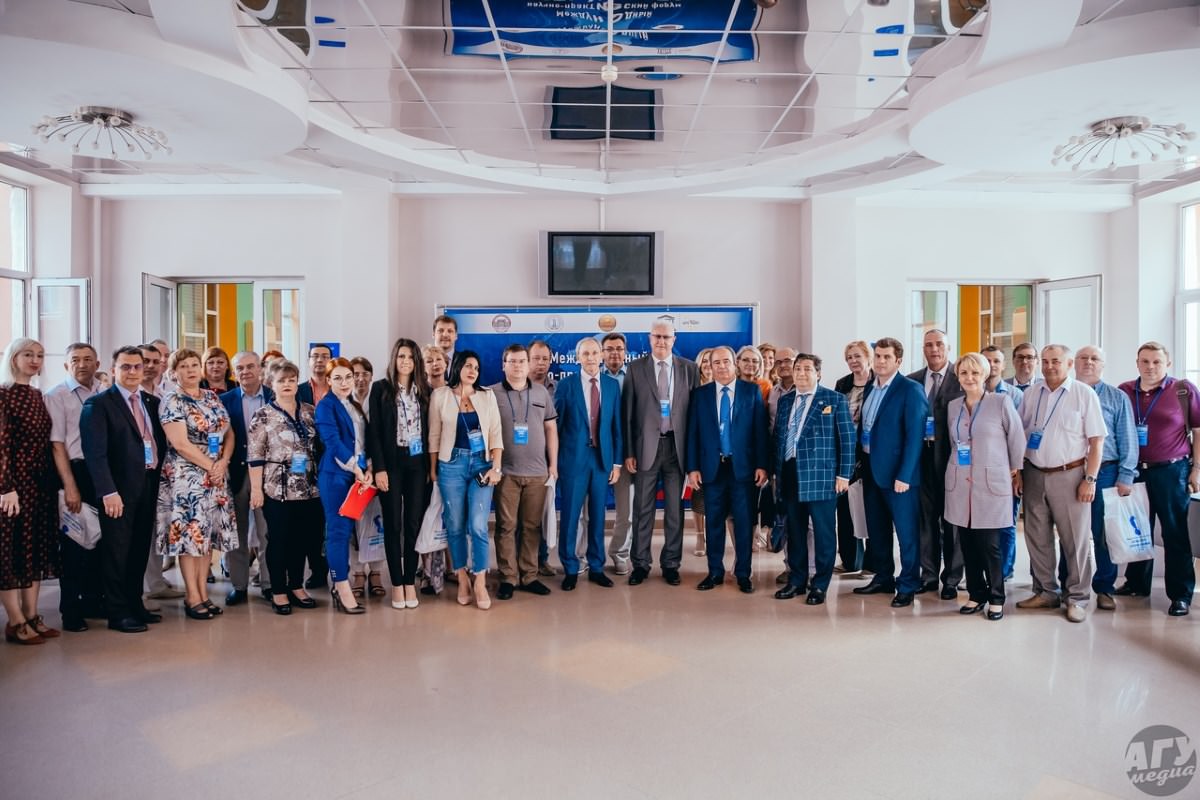International Forum “Caspian Region in Digital Economy Era” Is Being Held in Astrakhan
 24.05.2019
24.05.2019.jpg)
Astrakhan State University has just concluded the plenary meeting of the forum, and there are six discussion platforms ahead. The participants are discussing different aspects of digitalization in education, science and business.
The idea to hold such a forum appeared six months ago. Then the invited experts expressed their desire for supporting the forum organizers — Astrakhan State University and the International Institute of Law.
It should be noted that ASU is actively involved into the development of digitalization issues, participates in the project “University 20.35” and is concerned with digital transformation. Today, different scientists and scientific areas work at the intersection of information technologies.
The ASU Rector has discussed this issue with Ali Mohammadi, the Consul-General of the Islamic Republic of Iran in Astrakhan, and Atadurdy Bayramov, the Consul of the Republic of Turkmenistan. The First Caspian Economic Forum will take place on August 12 in Turkmenistan. The agenda includes a discussion on the role of the Caspian region in the global context.
Opening the forum, Astrakhan State University Rector Konstantin Markelov thanked our partners in the Caspian affairs and marked out the trendiness of topics, related to digitalization. Digitalization is a relevant issue for the Caspian region as well. The citizens of the Caspian states build a single community together, are involved into economic, political and integration issues and processes. The Convention on the Legal Status of the Caspian Sea, signed by the presidents of five Caspian states, kicked start to further activities in this sphere.
It should be recalled that the forum will last two days — at Astrakhan State University on May 24 and at the Astrakhan branch of the International Institute of Law on May 25. The discussion platforms will provide an opportunity to discuss some issues of cross-border cooperation under the conditions of digital economy development, digital technologies in education, science and business, cybersecurity in the virtual world, ethic and sociocultural aspects of society digitalization, legal education in the digital revolution era and a lot more.









